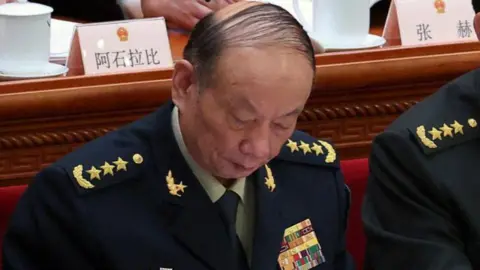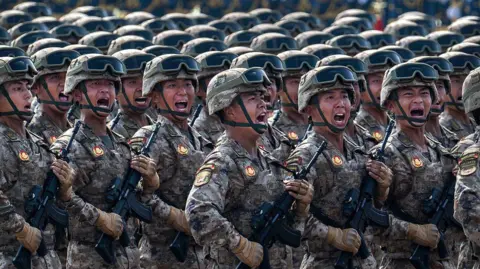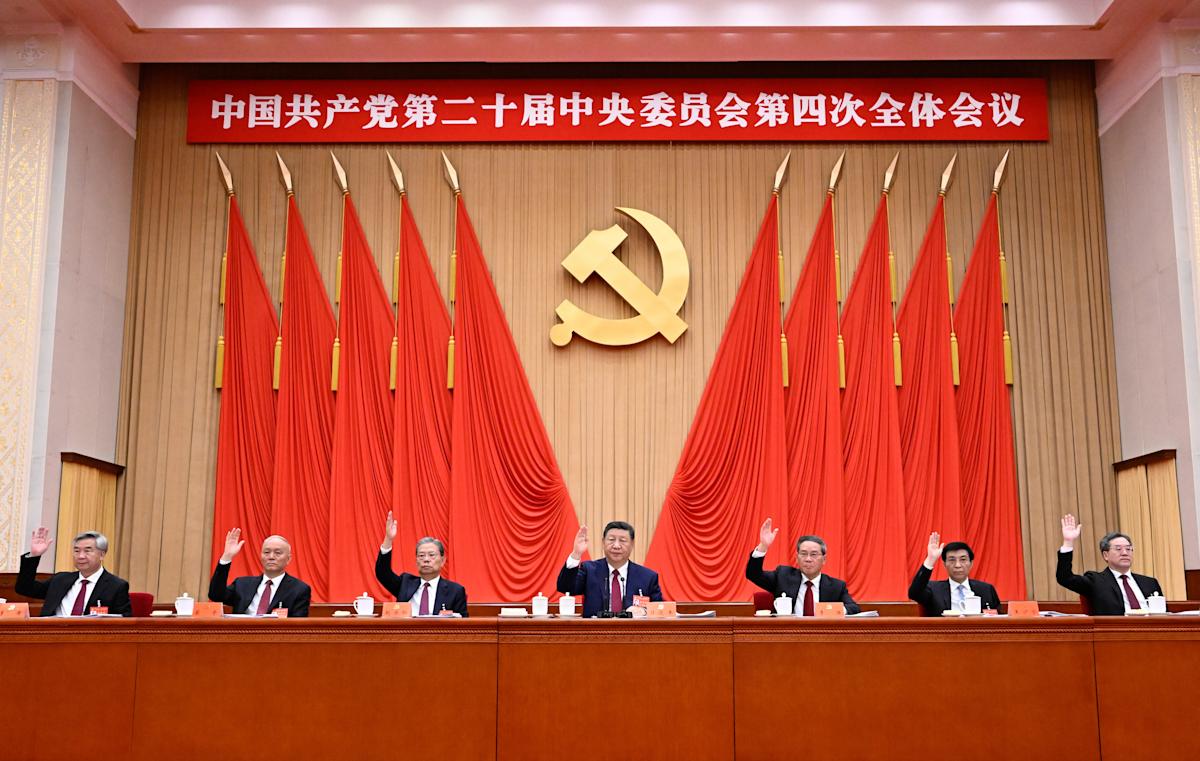Stephen McDonell,China correspondent and
Joel Guinto
 Reuters
ReutersThe Chinese Communist Party has named a veteran who has overseen anti-corruption efforts in the military to be the country’s second highest ranking general, just days after nine generals were expelled in a major purge.
The appointment of Zhang Shengmin as second-ranked vice chairman of the Central Military Commission was announced at the end of a four-day Central Committee meeting.
Zhang becomes the third highest official in the country’s top military body, after the first-ranked vice chairman and President Xi Jinping.
The nine expelled generals were suspected of serious financial crimes, China’s defence ministry said last week. However, analysts said it could also be seen as a political purge.
Their removal marked one of the Chinese Communist Party’s largest public crackdowns on the military in decades.
For months, the Central Military Commission has signalled that it would conduct a crackdown. In July, it issued new guidelines calling for the elimination of “toxic influence” in the military and listing out “iron rules” for cadres.
The crackdown follows smaller-scale public purges of other military officials in recent years, including former defence ministers Wei Fenghe and Li Shangfu.
Following his promotion Zhang, 67, will serve with another more senior vice chair, Zhang Youxia, on the Central Military Commission.
He is a general from the People’s Liberation Army Rocket Force and has been serving as deputy secretary of the Central Military Commission’s anti-corruption arm.
He comes from the central province of Shaanxi and joined the army in 1978.
 Getty Images
Getty ImagesDuring the four-day meeting that ended Thursday, the party’s Central Committee also approved a new five-year-plan – a broad document to guide its priorities.
The plan emphasised “scientific and technological self-reliance”, something Chinese tech companies will need if the Trump Administration continues to restrict access to computer chips and advanced software.
The document also called for “accelerating the green transition” and “modernising defence” as well as boosting domestic consumption to make up for lost export revenue, during a time of geopolitical uncertainty.



